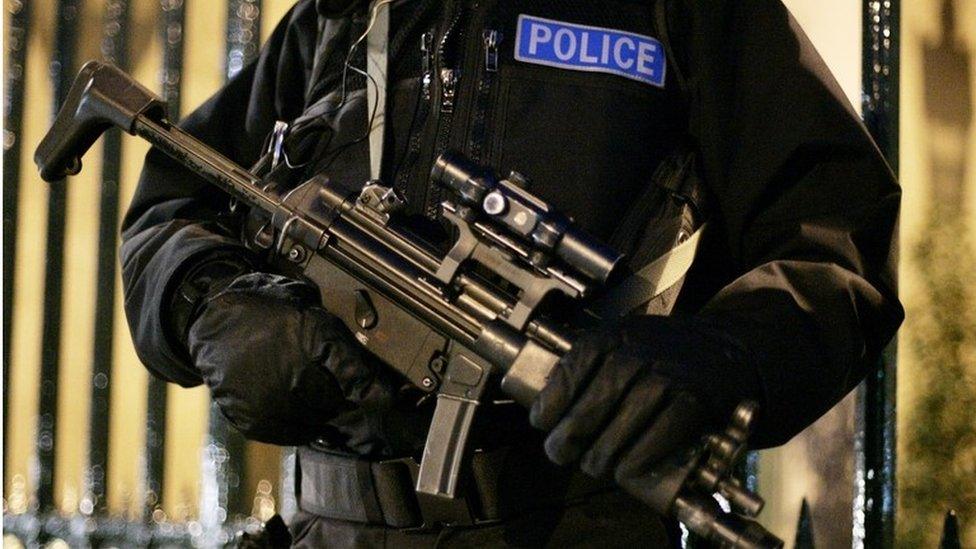More armed police set to protect London, say Met chief and mayor
- Published
- comments
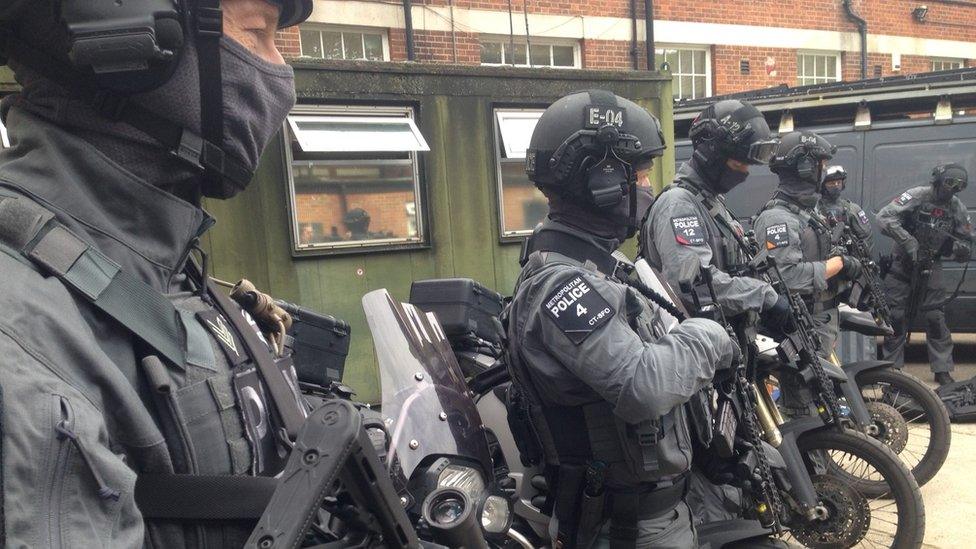
An increased number of firearms officers will be seen at some of the capital's most famous locations
More armed police are to be seen on patrol in London, Metropolitan Police commissioner Sir Bernard Hogan-Howe and Mayor of London Sadiq Khan have said.
Sir Bernard announced the move to reassure the public and deter attackers following terrorist attacks in Europe.
The Met has already said the number of armed officers will go up in London by 600 to 2,800.
And a further 900 armed officers are planned to be in operation for the rest of England and Wales.
But Steve White, chairman of the Police Federation of England and Wales, said it may take two years to fully train the 1,500 recruits planned nationally.
"When you're recruiting 1,500 it's going to take a lot of time. You've got to find the resources, the facilities and the people," he told the BBC.
However, Deputy Chief Constable Simon Chesterman, the national lead for firearms, said last month that the majority of new armed officers will be in place by April 2017.
The latest announcement comes after 84 people were killed when a lorry ploughed into a large crowd watching a fireworks display in Nice in the south of France last month.

Do armed police make you feel safer?
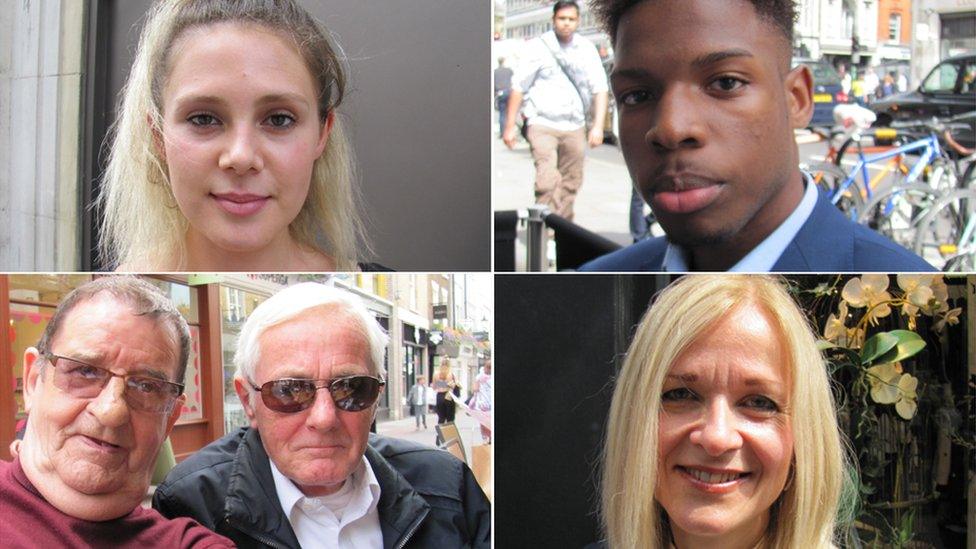
Clockwise from top left: Bryony Wood, Ebuka Orunta, Julie Banks, and John Coles and John Lee
Londoners and tourists out enjoying the August sunshine in central London report mixed feelings about more armed police patrolling the city's streets.
Teacher Julie Banks, who was visiting from Liverpool, says she finds the news reassuring, "especially at this time of year when there are more tourists and crowds. We shouldn't be complacent".
Retired friends John Lee and John Coles, both from London, agree. "It's a good thing. It's not going to stop a terror attack, but it makes people feel more secure," Mr Coles says.
"I never thought I would see the day British police carried weapons in the street like this, but I think that needs to happen now - whether we like it or not," Mr Lee adds.
Bricklayer Gary Johns, 34, approved, but says: "The real question is what their response time is."
Others, however, say the sight of police carrying heavy weapons makes them uneasy. "It makes me more nervous than secure to be honest," says Bryony Wood, a make-up artist, 26, from west London. "It's a reminder of what might happen."
"I have mixed feelings about it," says Ebuka Orunta, 20, from south London. "On one hand I feel safer knowing the Met has a strategy in place to mitigate the risk.
"On the other hand, we've seen the problems with police brutality in the US. It's important the people in charge of this weaponry are the right people who are going to protect us."
Do armed police make you feel safer?

Sir Bernard said: "We have no intelligence that there will be an attack shortly but what we do know is what we have seen in western Europe.
"We have seen attacks in Germany, in Belgium, in France and we would be foolish to ignore that, so it's important that we get officers out there with firearms to respond."
The commissioner said the increased firearms teams would be patrolling randomly around the clock.
It comes after he told a newspaper that a terror attack on the UK is highly likely and a case of "when, not if". Writing in the Mail on Sunday, external, the Met chief said there was a "sense of fear" in Britain.

What are the numbers?
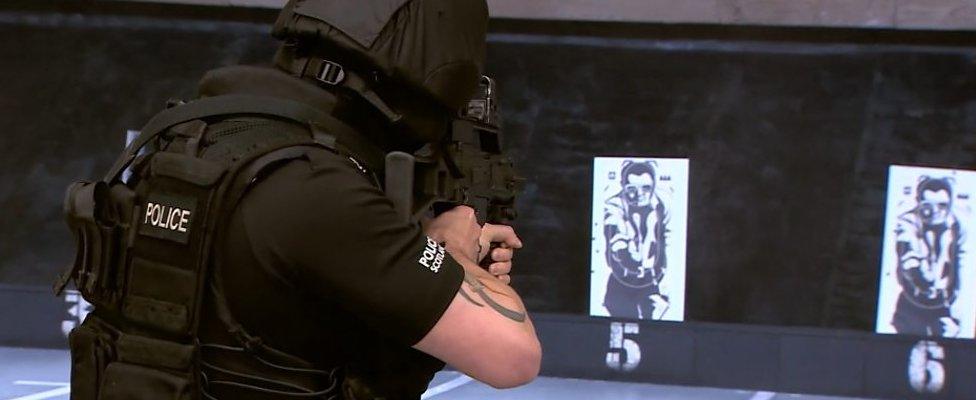
Latest Home Office figures show the number of firearms officers in England and Wales fell slightly from 5,647 in March 2015 to 5,639 in March this year. The number has fallen by more than 1,000 in the last five years
Police Scotland said in June it would recruit an additional 90 officers who will be attached to Armed Response Vehicles, bringing the total number to 365
It will also look to recruit 34 more trainers and specialist firearms officers

Sir Bernard Hogan-Howe said armed officers were ready "for the sorts of things we've seen in western Europe"
Mr Khan said: "It's really important that Londoners are reassured that the police service, that the security service, that all of us are doing our bit to keep Londoners in our city safe...
"The threat level hasn't changed but we are learning the lessons from Europe, from Nice, from Paris, from Munich."

Analysis
By BBC home affairs correspondent Dominic Casciani
The Metropolitan Police have long aimed to make the capital as "hostile" an environment as possible for any would-be attacker to carry out a mass-casualty attack.
But if they can't stop someone attacking, the goal is to have enough armed police available to get to the scene of an atrocity quickly to minimise casualties and neutralise the threat.
Armed police reached the scene of the 2013 killing of Fusilier Lee Rigby 11 minutes after the 999 call. The attackers were not armed with automatic weapons and just stood there waiting for police to arrive, rather than attacking anyone else.
Clearly, in a Paris-style scenario, 11 minutes is a long, long time so a great deal of today's security planning aims to accelerate how quickly specialist firearms officers could reach a scene.
None of which addresses a much bigger issue: what if the attack isn't in London, Birmingham or Manchester? Major cities may be well-resourced - but preparing to respond to an incident elsewhere is far more challenging.

The Met said the new armed officers would be "working alongside their neighbourhood and specialist colleagues", and Mr Khan said there would be a second dedicated PC in every London ward by the end of next year.
In Munich, Germany, nine people died in a shooting at a shopping centre in July while in November 2015, gunmen and suicide bombers killed 130 people in Paris.
Meanwhile, Mr White expressed his concern about the time it would take to put the plan in place.
"What we've got to make sure is that we have the resources in the right place at the right time and we've also got to recognise that this isn't London-centric... a terrorist attack could happen anywhere in the country."

How are Met Police firearms officers trained?
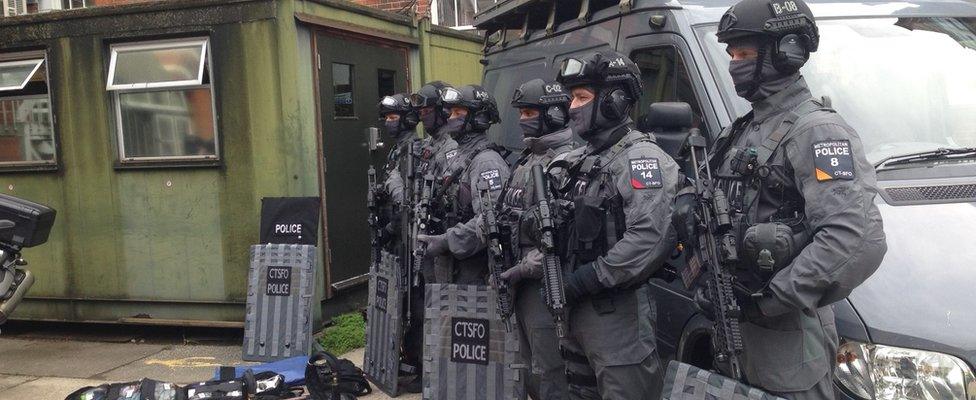
Firearms officers in the Metropolitan Police have to undergo a comprehensive selection and training process before they are allowed on to the streets with a gun.
They have to pass two selection processes - locally and in the force's firearms department, before an initial assessment
There is then a nine-week training course which, if completed successfully, allows them to carry a handgun, larger semi-automatic weapon and Taser
Firearms officers are deployed in teams of three in armed response vehicles, which also carry less lethal weapons such as shotguns that can be used on dangerous animals
Officers who want to specialise in counter-terrorism will spend a significant period of time as part of a routine firearms team, before additional training of at least three months
The elite squads, which now cover the capital 24 hours a day, are trained to operate in a range of environments including on water, abseiling and on motorbikes

- Published31 July 2016
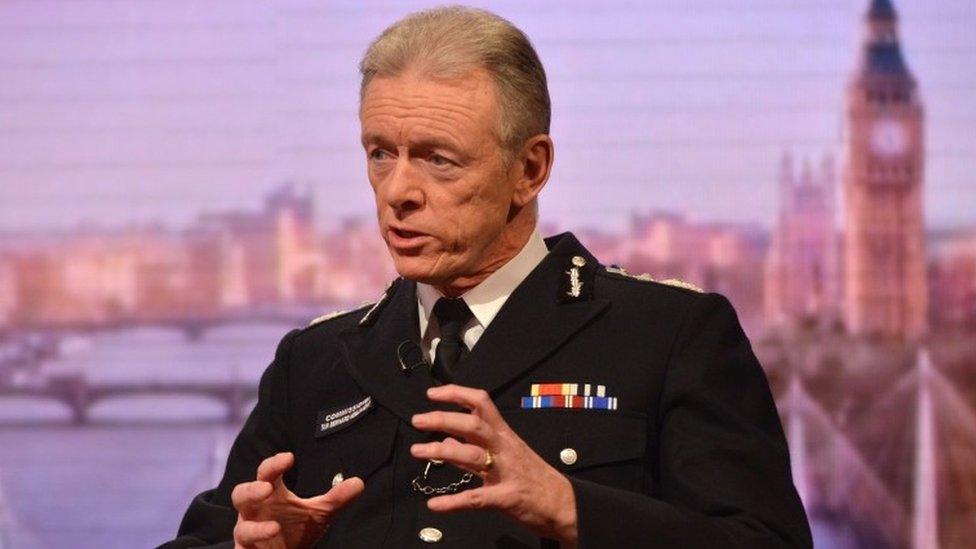
- Published14 January 2016
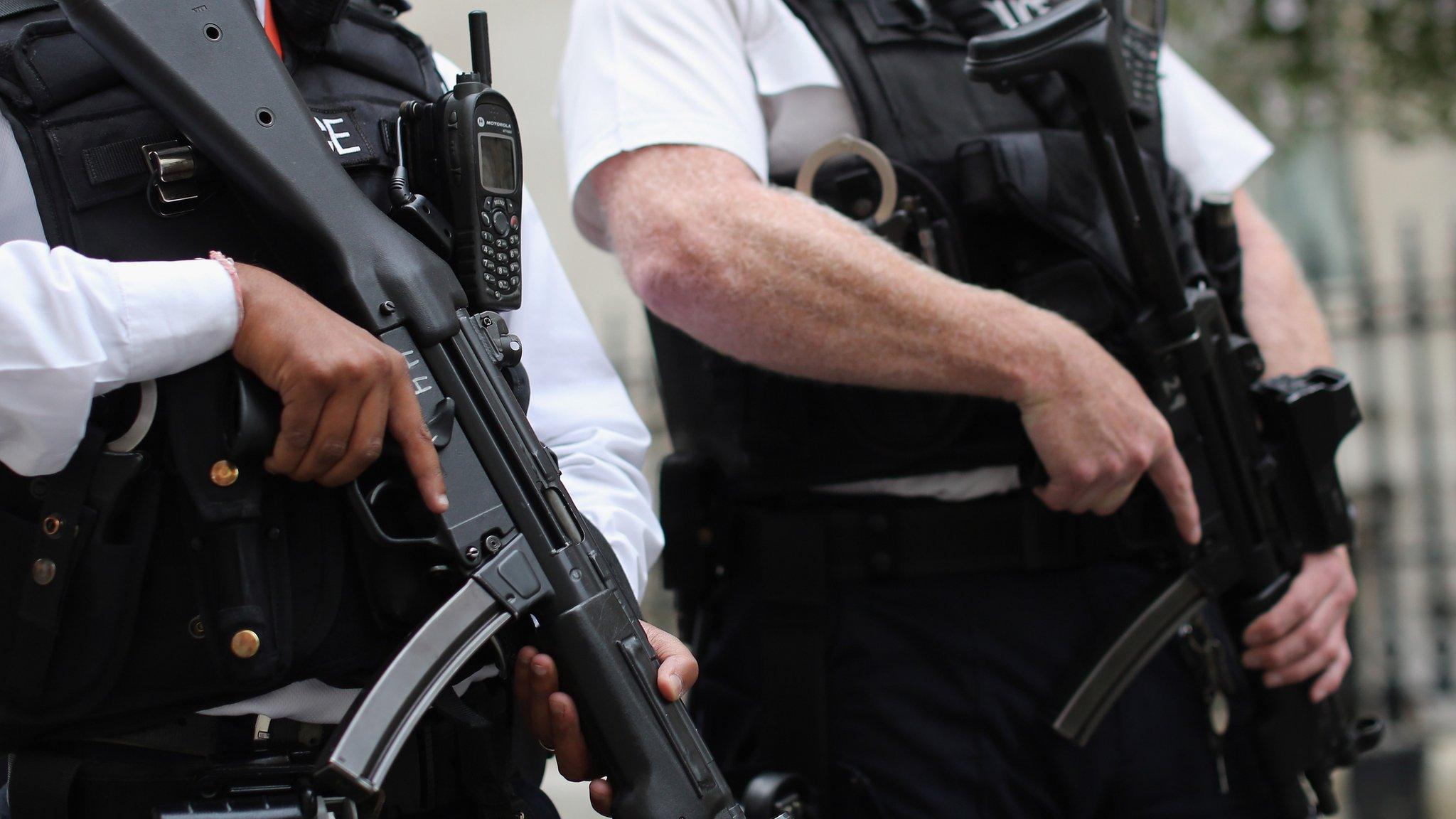
- Published28 June 2016
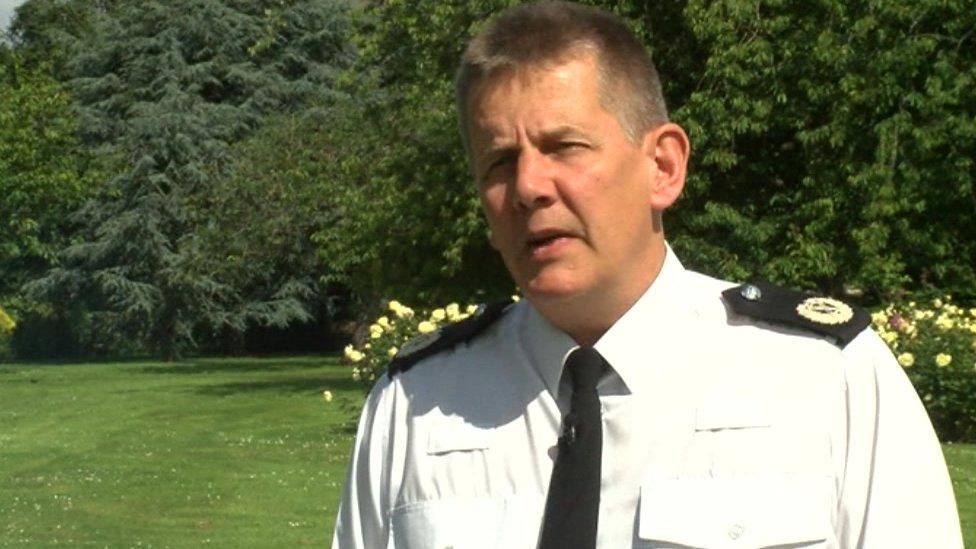
- Published16 June 2016
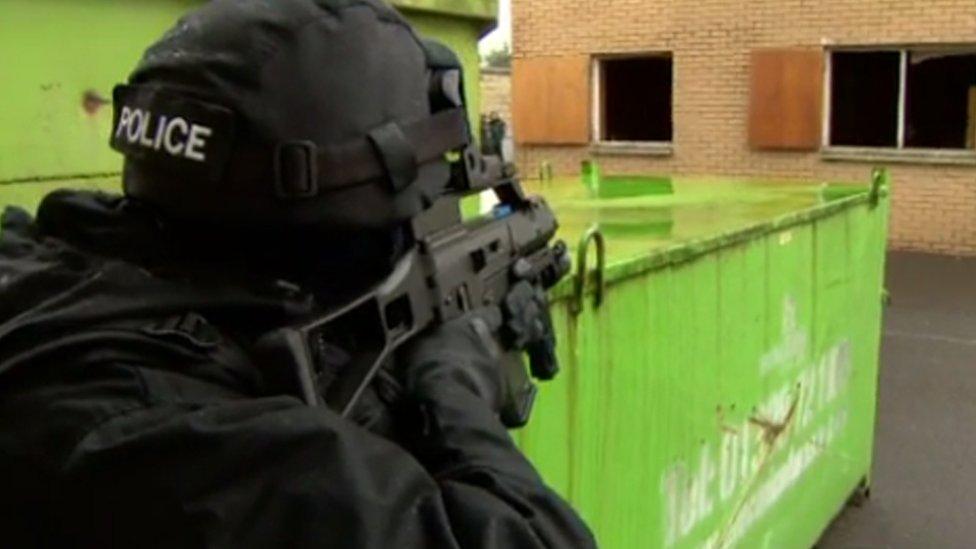
- Published17 May 2016
- Published17 May 2016
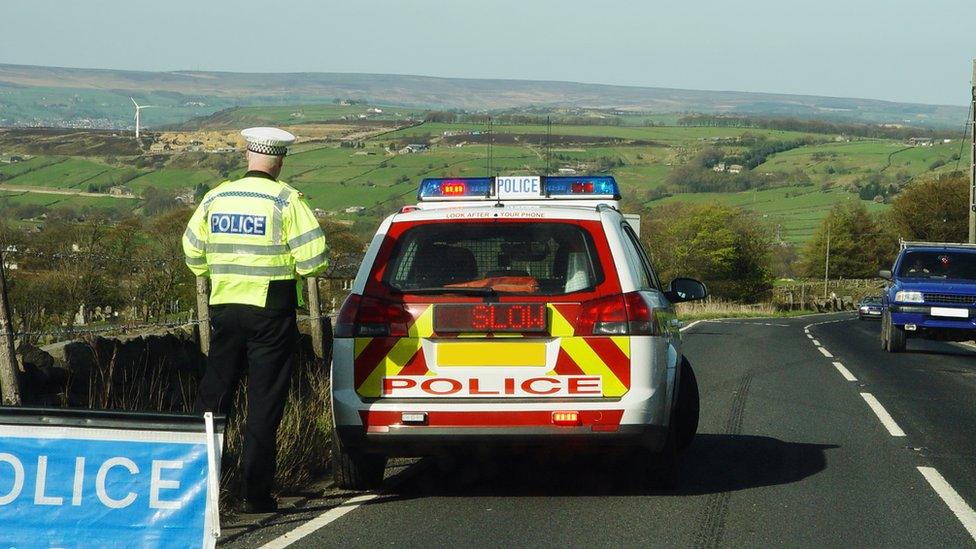
- Published1 April 2016
